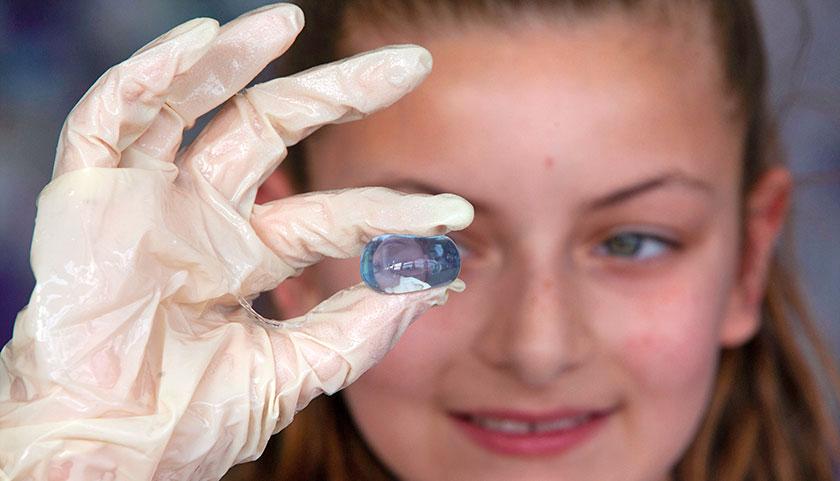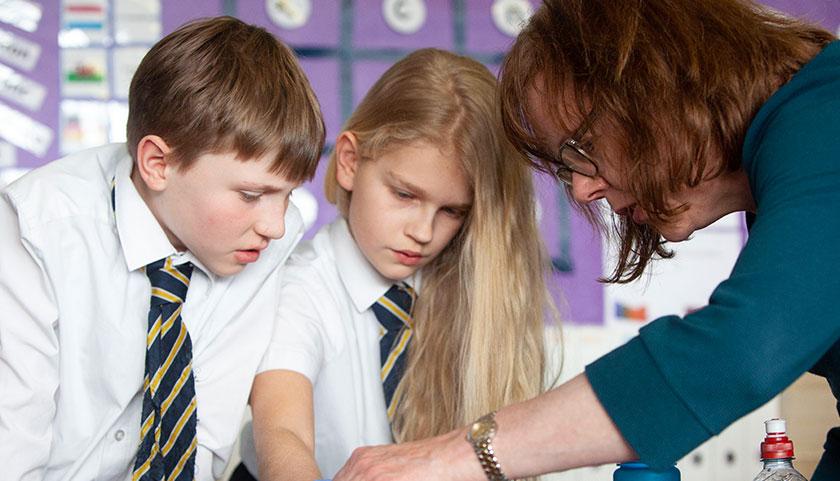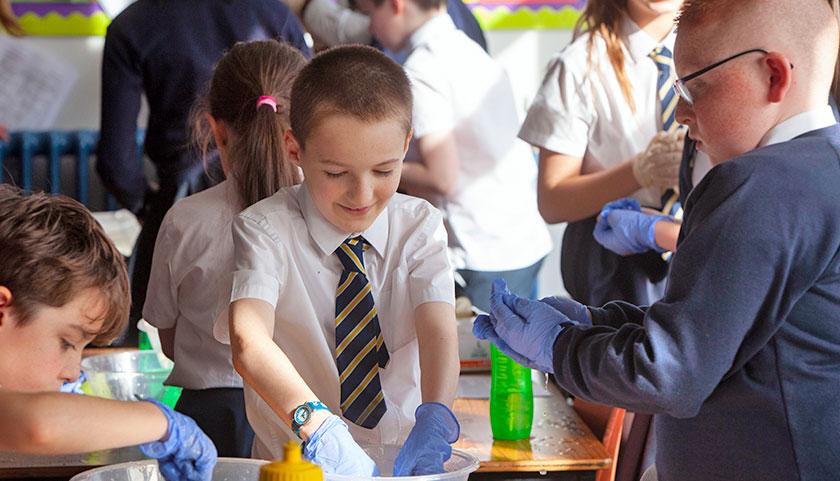A pilot project that launched last year to train Scottish teachers on climate change has been given the green light for a second year, after training more than 100 teachers.
The Climate Change initiative, funded by ScottishPower, sees Glasgow Science Centre specialists deliver training sessions with teachers, exploring the complex subject of climate change through science, engineering, technology and maths (STEM) subjects.
More than 100 teachers have been through the programme to date and ScottishPower has now confirmed its funding commitment to training a further 100 teachers in the next year. The announcement comes as school children take part in strikes across the world today, calling for a stronger focus on the increasing issue of climate change.

The programme covers three interactive modules, devised by experts at the Science Centre to engage with primary school aged children. They include a focus on reducing plastic waste, harnessing ‘waste’ gases and recycling. Each lesson is designed in line with second level Curriculum for Excellence experiences and outcomes.
Today, during British Science Week 2019, Ms Emma Whyte at St. Monica’s Primary School in Pollok, Glasgow, one of the first teachers to opt-in to receive the training, delivered a session to her primary six class students. In the lesson, pupils made an eco-friendly ‘water bottle’ from alginate, an alternative to plastic.
Teachers across the country are able to benefit from the programme through a series of educational materials, available online or at Whitelee Wind Farm, the ScottishPower-owned site on the outskirts of Glasgow.
Ann McKechin, Head of CSR at ScottishPower, said: “We recognise that our young people will play a key role in building a sustainable future and are passionate believers that education is the key to making a better future, quicker.
“ScottishPower is committed to a clean energy future and encouraging behaviour that reduces the impact we all have on our planet.
“The sessions are brought to life by Scotland’s teachers giving them the tools and knowledge to confidently deliver lessons on an increasingly important yet very complex topic.
“Thanks to the expertise of the team at the Glasgow Science Centre, we have formulated a series of hands-on lessons that really engage with young minds; inspiring them to think about life in the future and the role they play in it.

Susan Meikleham, Senior Learning Coordinator at Glasgow Science Centre, said: “We are delighted to be working in partnership with ScottishPower on a project that is so topical and so important.
“We passionately believe that STEM helps people make sense of the world around them and want to encourage pupils and teachers to build their inner scientist by exploring these hands-on activities.
“The training and lessons bring to life solutions that may help in the fight against climate change. We hope they will inspire young people to change their behaviours and consider STEM careers in future.”

Nicola Roberts, Principal Teacher at St Monica's Primary School added: "The training provided by ScottishPower and the Glasgow Science Centre has been outstanding. The children have been fully engaged in the lessons and it’s really given them an excellent sense of the need to reduce, reuse and recycle.
"Staff feel increasingly confident in tackling these aspects of STEM in the classroom and generations to come will benefit."
This year’s British Science Week (8-17 March) celebrates the theme ‘change’ and was chosen to encourage young people to think about and investigate the changes happening in the world; from seasons and climate to materials and energy.
ScottishPower press office: Jen Ward (07983 547 727)
Glasgow Science Centre press office: Sean Lafferty (0141 420 5010 ext. 303)
Notes to editors
View educational materials for the lessons can be accessed at the Glasgow Science Centre website.
Lesson 1 – Innovations in reducing plastic waste
This lesson explores the concept of ‘reduce, reuse, repair, recycle’, encouraging students to understand the hierarchy that should be implemented to save energy in the production of new items. Reducing use will ultimately save the most energy, with recycling being considered as an option when we cannot reduce, reuse, or repair an item.
Lesson 2 - Biogas
This lesson encourages students to understand the difference between fossil fuel sources and renewable energy sources. During the session, students are encouraged to build their own model biogas plant.
Lesson 3 – Recycling
This lesson explores the idea that the production of everyday items uses energy. Energy is used during the harvesting of raw materials, manufacturing of products and disposal of these items. The lesson encourages students to understand the importance of recycling to save energy at each of these stages.